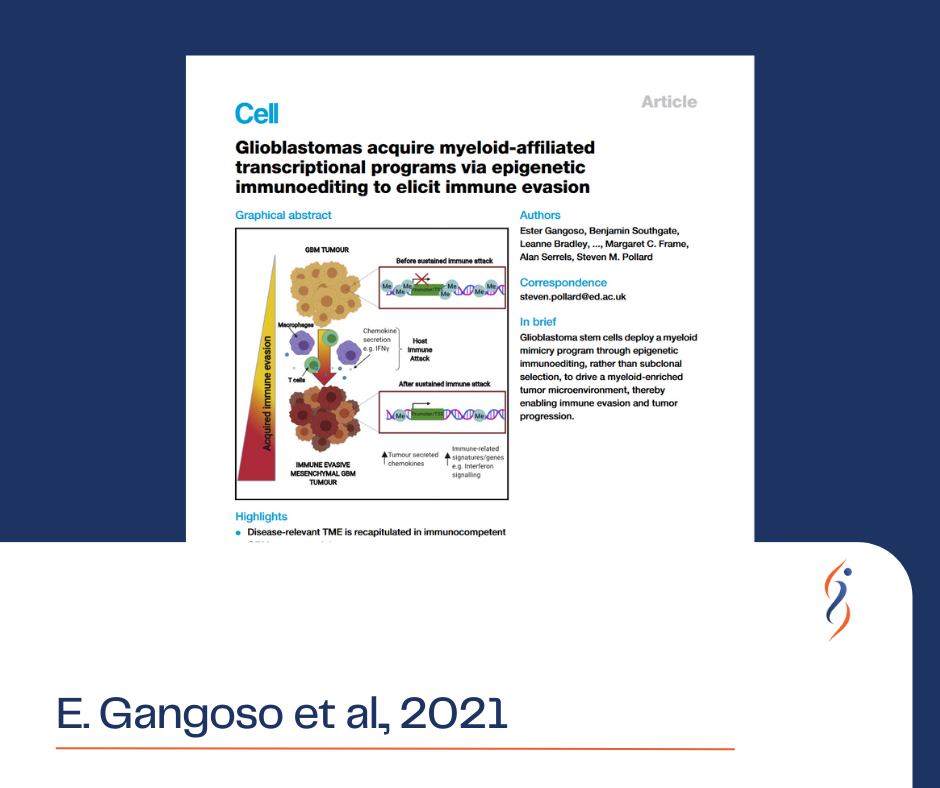Ester Gangoso, Benjamin Southgate, Leanne Bradley, Stefanie Rus, Felipe Galvez-Cancino, Niamh McGivern, Esra Guc¸ Chantriolnt-Andreas Kapourani, Adam Byron, Kirsty M. Ferguson, Neza Alfazema, Gillian Morrison, Vivien Grant, Carla Blin, IengFong Sou, Maria Angeles Marques-Torrejon, Lucia Conde, Simona Parrinello, Javier Herrero, Stephan Beck, Sebastian Brandner, Paul M. Brennan, Paul Bertone, Jeffrey W. Pollard, Sergio A. Quezada, Duncan Sproul, Margaret C. Frame, Alan Serrels, and Steven M. Pollard
Glioblastoma multiforme (GBM) is an aggressive brain tumor for which current immunotherapy approaches have been unsuccessful. Here, we explore the mechanisms underlying immune evasion in GBM. By serially transplanting GBM stem cells (GSCs) into immunocompetent hosts, we uncover an acquired capability of GSCs to escape immune clearance by establishing an enhanced immunosuppressive tumor microenviron- ment. Mechanistically, this is not elicited via genetic selection of tumor subclones, but through an epigenetic immunoediting process wherein stable transcriptional and epigenetic changes in GSCs are enforced following immune attack. These changes launch a myeloid-affiliated transcriptional program, which leads to increased recruitment of tumor-associated macrophages. Furthermore, we identify similar epigenetic and transcriptional signatures in human mesenchymal subtype GSCs. We conclude that epigenetic immu- noediting may drive an acquired immune evasion program in the most aggressive mesenchymal GBM sub- type by reshaping the tumor immune microenvironment.
Cell 184, 2454–2470, April 29, 2021
